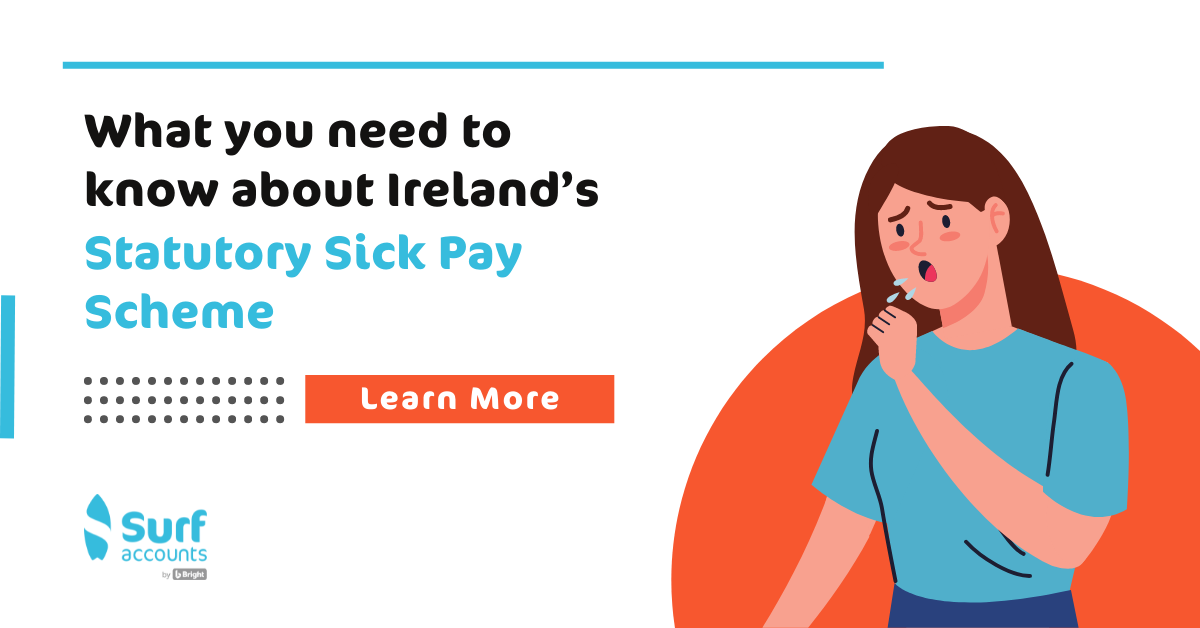What you need to know about Ireland’s Statutory Sick Pay Scheme
It is an employer’s responsibility to understand and adhere to current and recently introduced legislation. Further legislation in the interest of protecting workers was announced last year with the introduction of the Statutory Sick Pay Scheme. It is important that both employers and employees fully understand the new bill and help to protect their workers by implementing the legislation.
When was the Statutory Sick Pay Scheme announced?
The Scheme was announced on the 9th of June 2021 by Tanaiste and Minister for Travel, Trade and Employment, Leo Varadkar. The new scheme is being phased in over a 4-year period, with the objective to give all workers the right to paid sick leave. The bill is the latest in a series of actions introduced by the government to have improved social protections for employees and the self-employed. In the next section, the key points from the new Statutory Sick Pay Scheme are outlined.

The Statutory Sick pay scheme
As mentioned, the statutory sick pay scheme, which was passed last year, is being phased in over a 4 year-period. In 2022, workers are entitled to three days sick pay. In 2023 this will rise to five days payable and increase again to 7 days payable in 2024. Finally, from 2025 onwards, employers will have to cover the cost of 10 sick days per year. The phased in approach will allow employers the opportunity to plan and manage additional costs that may occur.
Important information
The cost of sick pay will be paid at a rate of 70% of an employee’s wage, subject to a daily threshold of €110. This threshold is accumulated based on 2019’s mean weekly earnings of €786.33 and equals an annual salary of €40,889.16. This figure can be revised over time by ministerial order, in line with inflation and changes to income. The rate of 70% along with the daily cap are set to ensure excessive costs are not placed solely on employers. The bill does not prevent employers offering better terms to their employees or unions negotiating for a better agreement.
Other important points highlighted in the scheme are that an employee will have to obtain a medical certificate to avail of statutory sick pay, and the employee will have had to work for their employer for a minimum of six months. Once the entitlement to sick pay from the employer is complete, employees who still need to take time off work may qualify for illness benefit from the Department of Social Protection, subject to PRSI contributions.
Tanaiste Leo Varadkar speaking on the new bill
“Ireland is one of the few advanced countries in Europe not to have a mandatory sick pay scheme and although about half employers do provide sick pay, we need to make sure that every worker, especially lower paid workers in the private sector, have the security and peace of mind of knowing that if they fall ill and miss work, they won’t lose out on a full day’s pay. I believe this scheme can be one of the positive legacies of the pandemic as it will apply to illness of all forms and not just those related to COVID-19.
By phasing this in over a four-year period, we are taking a balanced approach to plug a well acknowledged gap in our social protections while also responding to the cost concerns of small businesses in the current economic environment. The scheme is designed to be fair and affordable with the minimum complexity and administrative burden for employers.”
Key Takeaways
If you are an employer or employee, gaining an understanding of the right to sick pay and the phased introduction of the bill is important. This allows significant time to plan and understand the rights of your workers. To re-emphasise the key points from the new statutory sick pay scheme
Initial plan:
The bill strives to protect employees, particularly those in lower paid roles, that currently receive no sick pay and/or not entitled to illness benefit.

